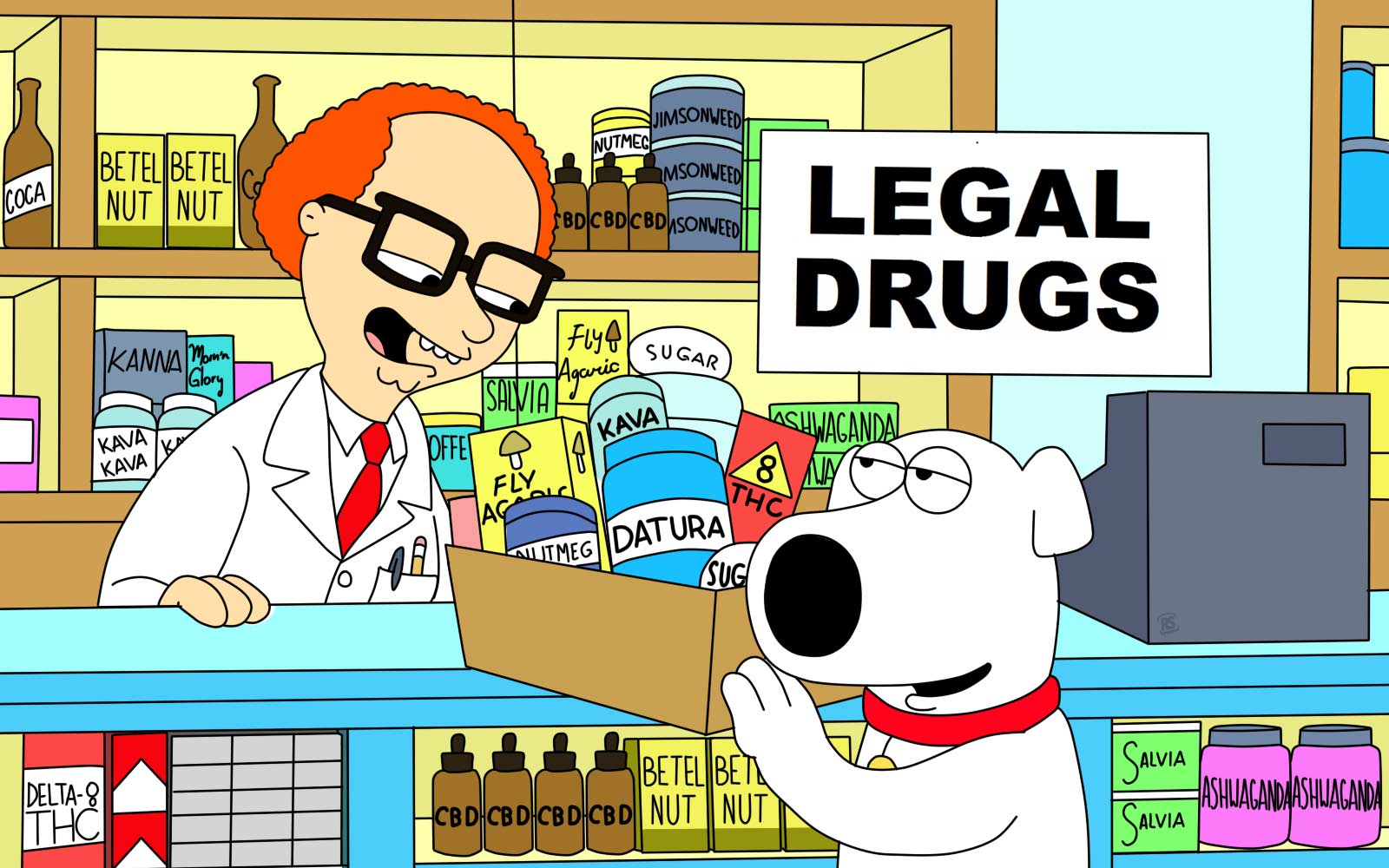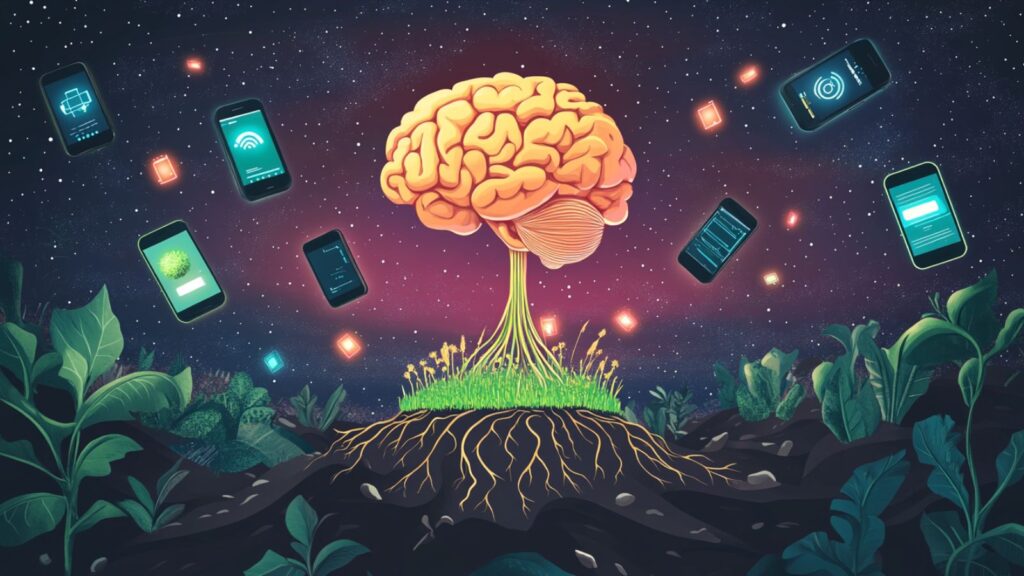For as far back as anyone can remember, drugs have been a part of humanity. However, for many even achieving a cannabis high legally has been difficult given the regulations around it. As the war on drugs seems to be approaching its end, with many states decriminalizing and legalizing various substances, there are still many restrictions in place. So, we created a handy guide on a variety of substances that give off legal highs.
What Is A Legal High?
To put it simply, a legal high is a way to get “high” legally from a substance deemed natural enough to remain unrestricted by law. These substances offer people options of achieving a natural high without facing any negative consequences. People can get high from items found in most spice racks and not even be aware of it. Some psychoactive plants and herbs can lift a person’s mood and stimulate alertness, while others can change a person’s reality and perception.
Legal Drugs You Can Buy
Many of the plants that can get a person high are legally and readily available. Whether plants that have mind-altering effects are legal or illegal, they should always be used with precaution. Many of these substances listed below are used for healing and understanding the spiritual world. Some have the potential to alleviate stress, anxiety and depression.
Caffeine
Caffeine is naturally derived from about 60 different plant species worldwide to be used in various beverages and foods. For example, caffeine comes from cacao beans, coffee beans and kola nuts. On the other hand, synthetic caffeine is manufactured from urea and chloroacetic acid. Even though synthetic caffeine is not extracted from plants like natural caffeine, studies have concluded that their effects on the body are the same.
Caffeine is probably the most ingested psychoactive substance in the world. Since caffeine is a stimulant, it gives rise to activity in the nervous system and the brain. A person’s cortisol and adrenaline levels are also increased. The amount of caffeine that is ingested depends on the reaction the body will have. Small amounts can help people focus and feel more alert, while large quantities can cause anxiety and insomnia.
Sugar
The brain is the organ that uses the most energy in the human body, and glucose is its primary fuel source. When the brain is exposed to too much sugar, a person’s self-control and cognitive skills can be impaired. Sometimes when a person only has a small amount of sugar, it can cause the body to want more.
Sugar can mimic the same effect that drugs create when they are consumed. Sweet, fatty and salty foods can all cause addiction-like effects, and those sugary foods can even cause some people to lose control of their eating and end up with weight gain. Overeating and substance abuse have the same neurobiochemical characteristics.
Kava Kava
Kava Kava, or just Kava for short, comes from the piper methysticum plant found in areas along the pacific ocean. The plant’s name means intoxicating pepper. It’s used as an herbal remedy and also recreationally during social affairs. Kava has been prepared for hundreds of years by grinding the roots until they become a powdery-like substance then mixing it with water.
There are kavapyrone substances in Kava that perform much like alcohol does on the brain when consumed. Kava has multiple uses and can promote happiness, tranquility, and ease and has been used to treat various conditions like insomnia, anxiety, stress, and even PMS.
Ashwagandha
Ashwagandha is a plant that is native to India but is also found in other regions such as Pakistan and Sri Lanka. It’s been used for thousands of years for medicinal purposes. Ashwagandha has many health benefits since it is loaded with proteins, vitamins, amino acids, calcium and iron.
Ashwagandha has been referred to as a tonic and a super herb for its ability to treat anxiety, improper thyroid functioning, stress and other conditions. A study conducted in 2015 showed that ashwagandha root extracts could improve athletic endurance. The chemicals found in this super herb help calm the brain, alter the immune system and lower blood pressure.
Kanna
The Kanna plant is a succulent from South Africa it is often sought for its potential to alter mood, treat anxiety and pain naturally. There is also research indicating that Kanna has cognitive and mood-boosting properties. In the area, Kanna has always played a significant role in society for its pharmaceutical purposes.
Local tribes in South Africa ferment Kanna by bruising the roots and stems between stones and storing it in sewn sheepskins for up to a year. Kanna is used for spiritual needs and also in social settings. It has treated sleeplessness and diarrhea in children. It can be purchased online and can come in different forms like powder, capsules, liquid and fermented leaves.
Datura
The beautiful exterior of the datura flower can trick anyone into thinking it’s harmless, but it can be poisonous if it is abused. That flowering plant can cause hallucinations, and intoxication can last for days. Datura can be smoked or applied on the skin as a lotion. Fifteen through twenty-five seeds that approximately equals fifteen grams of the plant can provoke an overdose, which is often fatal.
Aside from the hallucinations, datura can cause confusion, amnesia, psychosis, and alter mood and emotional expression. Although Datura is often abused for recreational use, it can be generally safe if it is consumed under the supervision of a medical professional. The Datura plant has three different chemicals that can each treat various health conditions.
Nutmeg
Nutmeg is one of the most popular spices that people use in the kitchen. It is grown in Grenada and Indonesia and used worldwide to flavor various foods, yet it is illegal in Saudi Arabia. The reason is that although it’s a spice and more commonly used in the kitchen, it can also be used as a drug to get high.
Nutmeg has psychotropic properties because it contains myristicin which produces mind-altering effects if taken in large quantities. Those effects can last up to two days and are often hallucinogenic. Despite being used as a spice or hallucinogenic substance, nutmeg also contains health benefits like anti-inflammatory properties and antibacterial properties and can boost libido.
Fly Agaric Mushroom
Amanita Muscaria, also known as fly agaric or fly amanita, is a magic mushroom with psychoactive properties. Fly agaric mushrooms are deep red with white dots. When the fungus of the mushroom is ingested, it produces hallucinogenic effects. This mushroom species is native to subarctic regions in the northern hemisphere.
Amanita muscaria is used for religious and spiritual ceremonies because of its psychoactive properties. Its main psychotropic compound, muscimol, affects the brain, resulting in feelings of lessened anxiety and relaxation. However, to some degree, this mushroom can be poisonous because its compounds are also toxic.
Morning Glory Seeds
Morning glory vines carry seeds that can have similar effects to LSD. These seeds contain lysergic acid amide (LSA) and tryptamine which create a hallucinogenic impact on the brain. The seeds are swallowed, crushed or made into teas to get intoxicated. Some of the effects from the seeds are hallucinations, elevated mood, visual distortions and a sense of deep insight.
Morning glory seeds were prevalent among the Aztec civilization during rituals and ceremonies for their psychotropic effects. Mayans also used the morning glory seeds to communicate with the spirits. In this day and age, these seeds can be easily obtained at any garden supply stores and nurseries and are sought after by teenagers looking to get a similar high to LSD.
Damiana
Damiana is an herb that grows in Mexico, the West Indies and Central America. It is used for medical purposes and its euphoric properties. This herb is commonly used to relieve stress, elevate mood and enhance libido. Damiana can be consumed by rolling up the stem-free leaves and smoking them and gives a natural high comparable to marijuana. Its considered a sacred herb and is firmly connected to spirituality, tradition and culture.
Salvia
The Salvia plant is an herb that comes from the mint family. It is originally derived from central and South America and is in parts of Southern Mexico. Salvia is known to cause hallucinogenic effects. Its primary psychoactive ingredient salvinorin A can cause dizziness, hallucinations and visual disturbances.
A salvia high can occur fast after ingesting it approximately five to ten minutes. For some people, the high can be brief and for others, the high can last up to several hours. Aside from the effects that Salvia has on the brain, there can also be physical consequences. Irregular heart rate, dizziness, nausea and loss of control of motor function and coordination are all among those physical reactions.
CBD
CBD stands for cannabidiol and is derived from the hemp plant. Research has shown that CBD may have anxiolytic and antipsychotic properties and therefore could be a good remedy for anxiety or psychotic disorders. For the best results, it should be taken daily as there is no risk of overdose. Marijuana and CBD can be be found in a cannabis plant but differ since CBD is not intoxicating. CBD has many positive effects on the body and mind as it can relieve pain, reduce stress and anxiety, reduce depression, help treat drug addiction and withdrawal and may even reduce acne.
Betel Nut
Betel nut is a seed from a type of palm tree called the Areca catechu. Betel nut can be chewed or ground up to be ingested. It can also be wrapped in leaves in this case spices or tobacco can be added to it. This type of seed works as a stimulant and can cause a person to have feelings of euphoria, increased energy and well-being.
Tobacco
Tobacco comes from the genus nicotiana plant that is indigenous to North and South America.
Tobacco can be difficult to quit because of the way it tricks the mind. It has temporary positive benefits. Tobacco produces the release of dopamine in the brain. Dopamine creates happy feelings and a positive mood. Low levels of dopamine are found in people that suffer from depression so they are known to use tobacco to feel happiness. The problem is that after a while of using tobacco those positive benefits go away and all that people are left with is an addiction problem that can be difficult to get rid of.
Jimsonweed
Jimsonweed (Datura stramonium) is also referred to as devil snare, thorn apple, locoweed and angels trumpet. It is a psychoactive plant that is native to rural and urban areas such as along highways, pastures and cornfields. Teenagers consume different parts of the plant sometimes the roots, seeds or even the whole thing for its hallucinogenic effects and feelings of euphoria. It is a dangerous plant to ingest since it can also be poisonous.
Delta-8 THC
There has recently been a craze over the cannabinoid Delta-8 THC it is the cousin of marijuana. It is derived from the hemp plant and is being referred to as weed light or the superior version of THC. It is commonly found as an edible or vape cartridge. It has the ability to be pain-relieving, anti-anxiety, anti-nausea and can protect the nervous system. Delta-8 THC can also provoke appetite and affect brain function.














